Useful services Casablanca vibrant innovative accessible
Introduction :
Casablanca is the biggest city in Morocco is a thriving city that combines modernity with traditions. It is frequently referred to as the financial center of the country, Casablanca (Dar El Beida in Arabic) is a city with an interesting past, a vibrant cultural scene and breathtaking architecture. Although it might not possess the exotic appeal of Marrakech or Fez the city’s vibrant as well as its coastal location and a business-friendly atmosphere makes it an ideal destination for both professionals and tourists. We will explore different elements of this city, providing helpful information for visitors and expatriates alike, as well as those looking to know more about the city’s powerhouse.
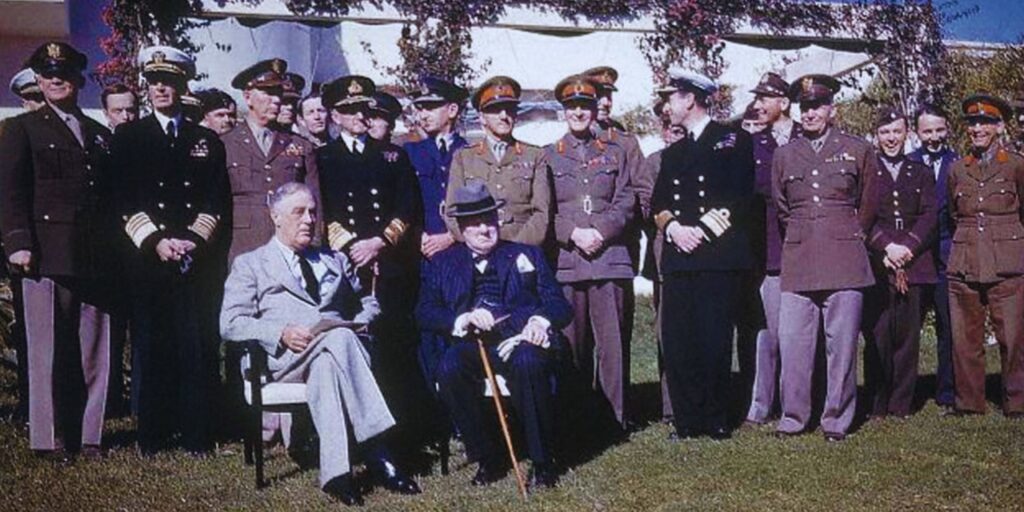
Historical Background
Casablanca has a long and intricate background. It was originally it was a Berber settlement, known as Anfa which was a key trading hub to the Phoenicians, Romans, and then the Arabs. It was destroyed through Portuguese army in 1468 The city was built as a fortress, and was named “Casa Branca,” which refers to “White House” in Portuguese. The modern name of the city, Casablanca, was later named in 1468 by the Spanish.
The French transformed Casablanca into a bustling colonial city during the beginning of the 20th century, creating the current layout of the city and architectural style. The French influence remains even today, especially in Casablanca’s Art Deco buildings and wide boulevards. After independence, Casablanca developed into a major economic hub, which attracted visitors from all across Morocco and further.
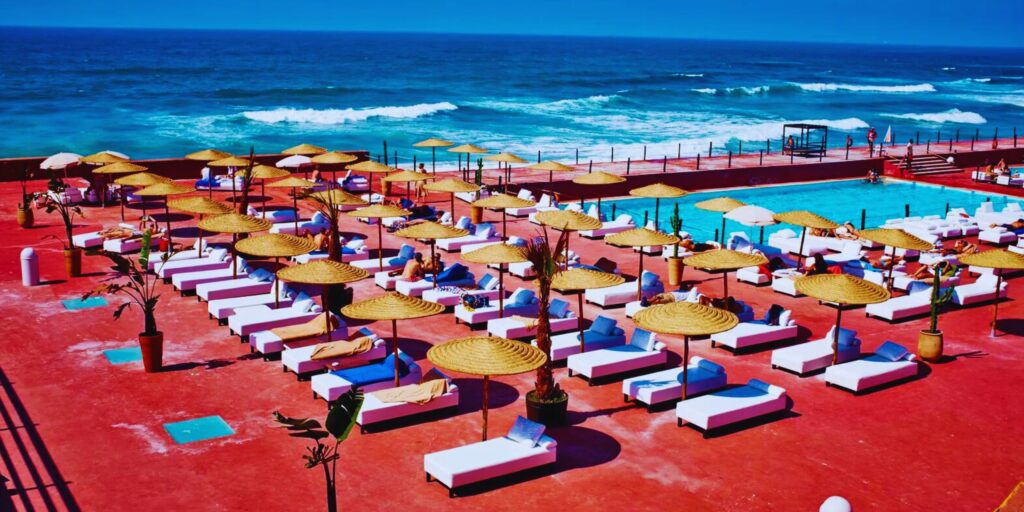
Geography and Climate
Casablanca is situated at the Atlantic coast, which provides cool breezes all year round. It covers an area of around 220 square kilometers and is the country’s biggest city both in terms of area and population. It has an Mediterranean climate with an important influence from the ocean. The summers are hot but temperated by the Atlantic and Atlantic Ocean, as winters are mild and humid.
The summer months (June until September): Average temperatures vary from 22degC to 28degC (72degF up to 82degF) however, they are the cities in the inland regions are cooler because of the ocean.
The winter months (December through February): Temperatures are moderate with temperatures ranging from 12degC up to 17degC (54degF to 63degF). The frequency of rain is higher during the colder winter months.
For those who are traveling for those who travel, for those who are planning to travel, the accurate time to go is between March and May, and September through November, when the weather is nice and there are fewer crowds.
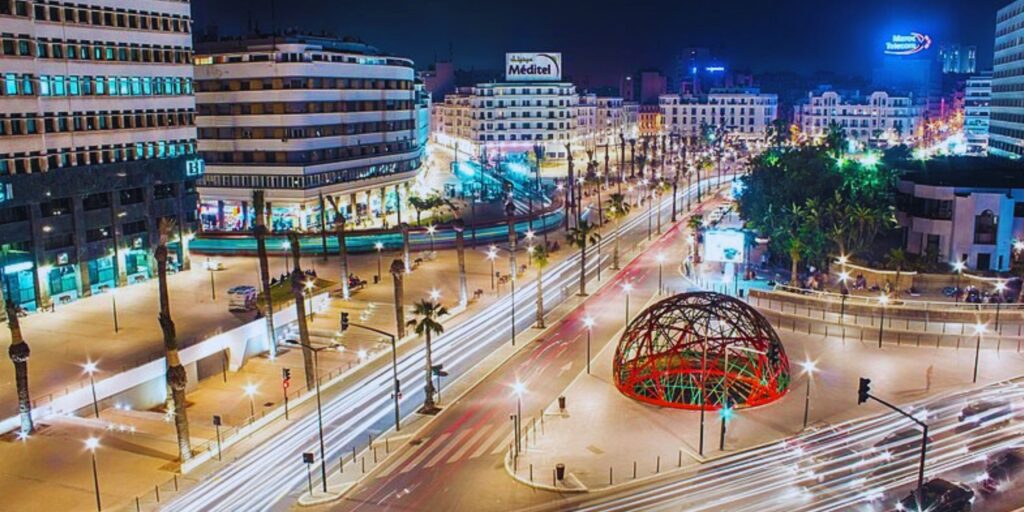
Getting to and Around Casablanca
Mohammed V International Airport
Casablanca is serviced with Casablanca is served by Mohammed V International Airport, located approximately 30 km to the south from the capital city. The airport is the busiest in Morocco, it hosts millions of passengers every year, with regular flights connecting major cities across the globe.
Transportation Options
Train It is the ONCF (Moroccan National Railways) provides comfortable and reliable train services and with Casablanca as a key stop. High-speed trains, such as the Al Boraq are able to connect Casablanca to Tangier in less than two hours.
Tramway The modern system of tramways in Casablanca, which has two tram lines that cover important areas of the city and is an ideal means to travel around the.
Taxis Small taxis (small taxis) are widely available and cost-effective for short trips, whereas Grand taxis (larger vehicles) are utilized to travel longer distances or for shared journeys.
Car Rentals and Buses: Buses are available but they aren’t always reliable. Car rentals are a good choice however, the traffic can be chaotic.
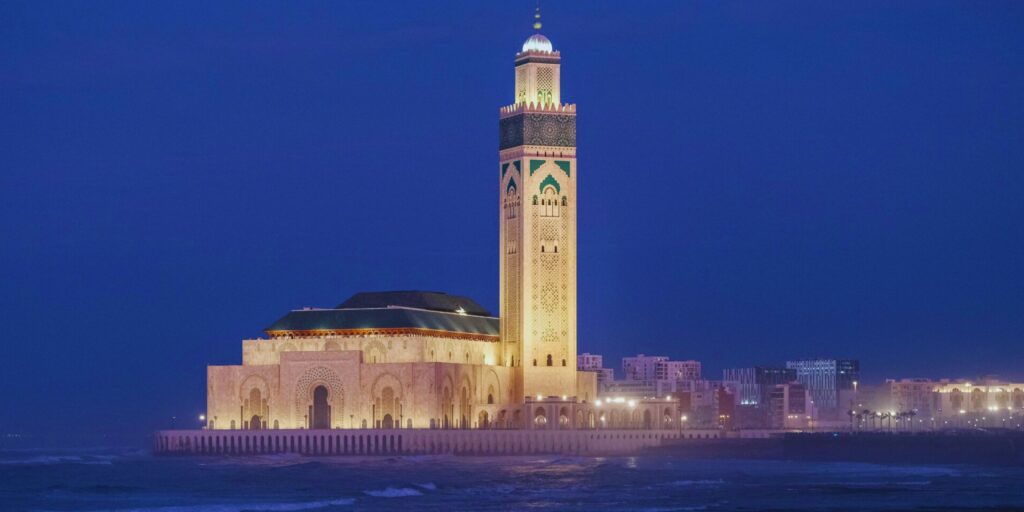
Major Landmarks and Attractions
Hassan II Mosque
One of Casablanca’s most famous attractions can be found in The Hassan II Mosque The largest mosque of Morocco and the seventh biggest in the entire world. The minaret, which is 220 meters is the highest of its kind in all the planet. It was built partially on it, and partially over the Atlantic Ocean, the mosque has breathtaking views of the ocean. Non-Muslims can visit the interior only during certain hours and is a must for anyone who is interested with architecture or Islamic tradition.
The Corniche
The Ain Diab Corniche is Casablanca’s lively waterfront promenade. It is lined with cafes, restaurants and nightclubs and nightclubs, the Corniche is a favorite destination for both locals and tourists, particularly in summer. It is located along the coast. it has stunning ocean views as well as a wide range of recreational activities including surfing, swimming and more.
Old Medina
The Casablanca’s old Medina might not be as beautiful as the medinas of Fez or Marrakech however, it does provide an insight into the city’s history. Explore narrow alleys brimming with markets run by locals that offer all kinds of traditional Moroccan items to more modern products. It’s a fantastic location to explore Casablanca’s traditional side and buy souvenirs.
Place Mohammed V
This iconic square is the centre of Casablanca’s historic colonial district. It is surrounded by magnificent buildings in Art Deco and Neo-Moorish styles It’s a stunning memory to the town’s French historical past. The square houses various government agencies and is frequently busy with activities.
Villa des Arts
For those who love art, Villa des Arts is a stunning museum which showcases both contemporary Moroccan artwork and works that reflect the country’s rich culture. It is housed inside the former Art Deco villa, the museum is a peaceful break from the city’s bustle and hustle.
Habous Quarter
Also referred to by the name of New Medina, the district was developed through the French in the 1930s to look like the traditional Moroccan medina. It is a blend of modern urban planning and traditional Moroccan architecture making it a distinctive neighborhood. It also houses the city’s accurate bookshops as well as artisan markets.
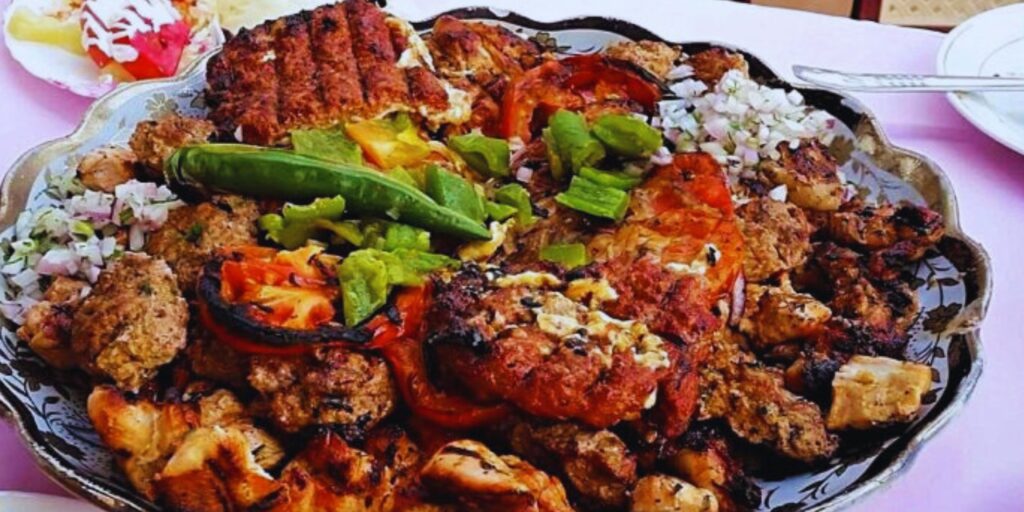
Cultural Insights
The cultural life of Casablanca can be as varied as the population. Casablanca is home to many different Moroccan customs and influences from around the world. Below are some important aspects of culture to keep in your head:
Languages
The two official language is Arabic and Berber The official languages are Arabic and Berber, however French is popular due to its colonial history. English is now more commonly spoken particularly in tourist areas, however it’s still helpful to know the basics of French or Arabic words.
Cuisine
Casablanca provides a dining experience that is both cosmopolitan and traditional. Moroccan cuisines like tagsine, couscous as well as pastilla are served in addition to international cuisines in style from French up to Asian.
Street Food To get a truly real experience you should try Moroccan street food like Briouats (savory pastry) and barbecued brochettes and fresh seafood in the port.
Cultural Etiquette
Dress code: Although Casablanca is more open compared to others cities within Morocco modest attire is still advised, especially when visiting holy sites.
Ramadan: During the holy month of Ramadan the majority of cafés and restaurants close for the time of the day. Tourists should be aware of local customs like not drinking or eating in public until sunset.
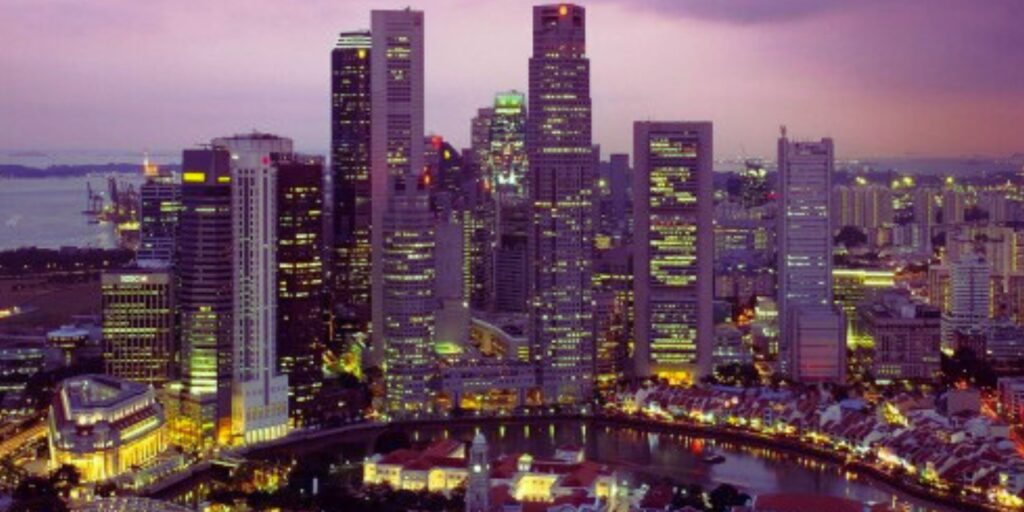
Economic Significance
Casablanca is Morocco’s capital city for business and finance with Casablanca Stock Exchange, the Casablanca Stock Exchange one of the largest of its kind in Africa. Casablanca is home to a variety of multinational companies, and acts as an entry point for foreign investments into Morocco in addition to Africa. The most important industries are:
Financial and banking Casablanca is home to a variety of financial institutions and banks which are both international and local.
Port of Casablanca: One of the biggest artificial ports worldwide and plays a vital economic role for Morocco and handles the bulk of Morocco’s imports as well as exports.
Technologies and startups: Casablanca has also been becoming a tech hub there are a rising number of tech startups and companies making their way to the city.
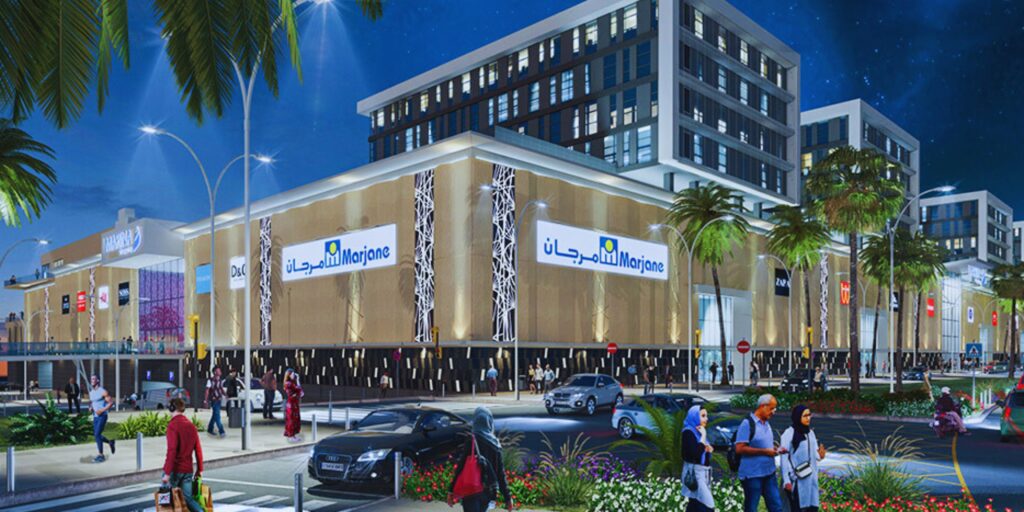
Shopping and Entertainment
Casablanca provides a variety of shopping experiences, ranging from classic souks and modern shopping malls.
Morocco Mall
This huge shopping mall situated on the Corniche is the biggest in Africa. It has over 600 stores as well as an indoor aquarium and an array of entertainment and dining choices, such as an ice rink as well as a cinema.
Anfaplace Shopping Center
It is situated along the waterfront. Anfaplace is a different mall with a wide range of local and international brands.
Local Markets
To get an original purchasing experience go to local markets, such as The Central Market and the Marche Derb Ghallef in which you will find traditional Moroccan products like textiles, spices, as well as crafts.
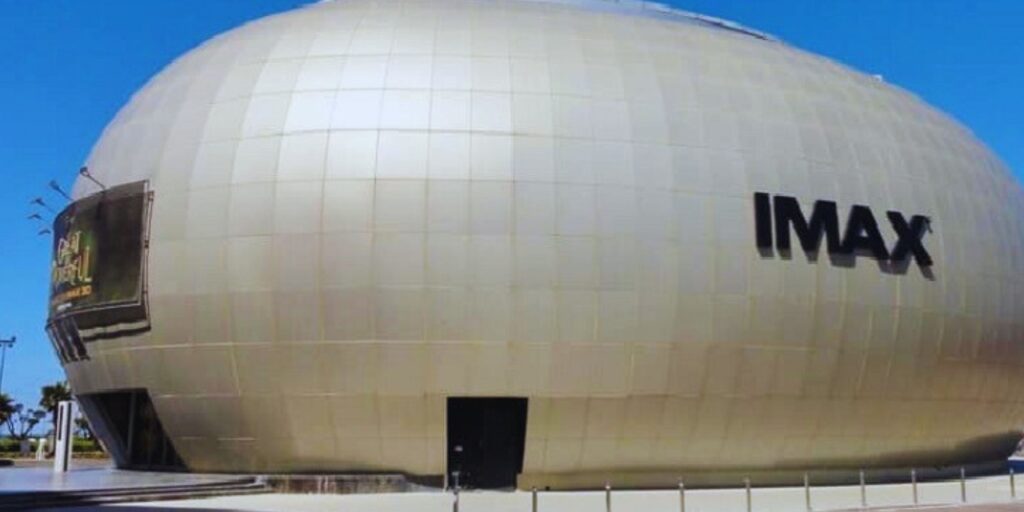
Nightlife and Entertainment
Casablanca is famous for its vibrant nightlife. Contrary to the other Moroccan cities, Casablanca offers many options to entertain guests in the evening, from relaxing lounges to lively nightclubs.
Nightclubs and bars: It is said that the Corniche region is main focal center for the night life of this city scene, with famous spots such as Sky 28 situated in the upper 28th level in Kenzi Tower Hotel. Kenzi Tower Hotel, offering breathtaking views of the city.
Live music: Casablanca Also, it has a thriving music scene with live music venues by the best Moroccan and international musicians.
Cinemas and Theaters: For cultural entertainment, Theatre Mohammed VI offers a wide range of shows, and the cinemas of the city, such Megarama screens local and international films.
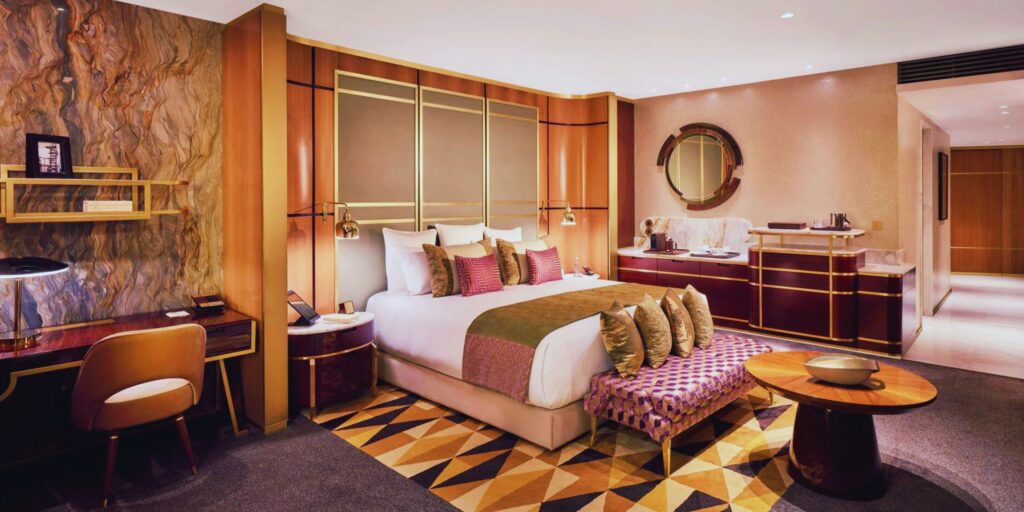
Accommodations
Casablanca offers a wide range of travellers from the discerning luxury-seekers to budget-conscious travellers. Here are some of the most popular choices:
Luxury Hotels: The Four Seasons Hotel Casablanca, Hyatt Regency as well as the Sofitel Casablanca Tour Blanche are among the top options for luxurious accommodations.
Mid-Range Hotels such as Barcelo Casablanca along with Kenzi Basma offer comfort and great value for money.
Cost: For budget travelers choices such as Hotel Central within the Old Medina prepare affordable lodging with basic facilities.
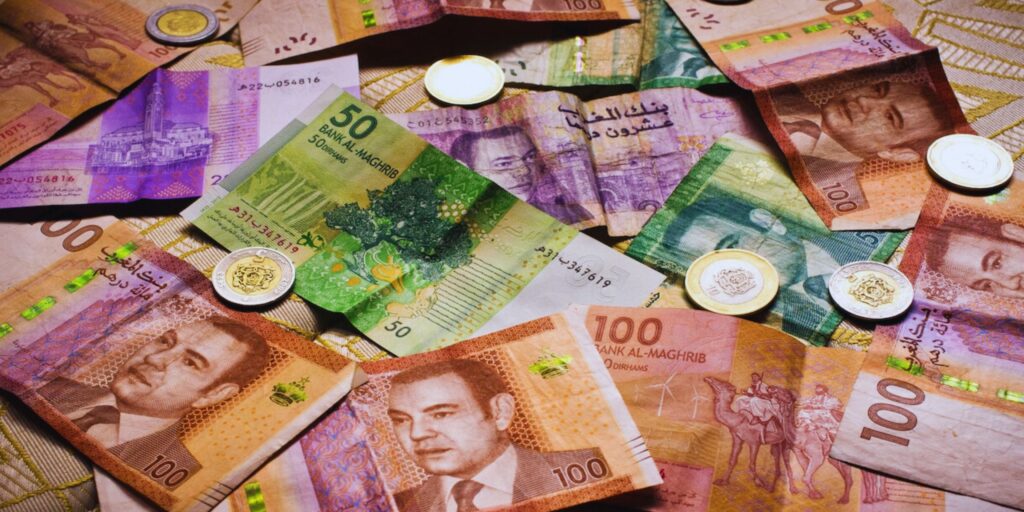
Practical Travel Tips
The currency is: The local currency is the Moroccan Dirham (MAD). Credit cards are accepted in a wide range of places however, it’s recommended to bring cash with you particularly for purchases of smaller amounts.
Security: Casablanca is generally safe for tourists, but minor crimes like pickpocketing may occur in the crowded areas. Be vigilant, particularly in the medina, or during the night.
Health The tap water of Casablanca can generally be drank safely, but most visitors prefer to drink bottles of water. The medical facilities are excellent and there are several international clinics open in case of emergency.
Admission and Visa Requirements For the majority of nationalities, Morocco doesn’t require the need for a visa to stay longer than 90 days. It is important to warrant that your travel documents are valid for minimum six months beyond the duration of your planned stay.
Conclusion :
Casablanca is a unique mix of modernity and tradition is a city that has contrasts. Its vibrant economy, rich history and diverse culture make it a captivating destination for tourists as well as business professionals. If you’re looking to visit its famous architectural sites, taking in the lively nightlife, or working at one of its towers, Casablanca offers something for every person.
You might also enjoy these articles
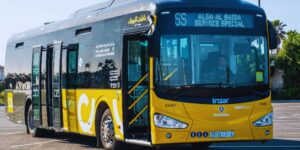
Casablanca transportation efficient accessible varied
Introduction transportation in casablanca is a day-to-day challenge. However, the city has a fairly developed transportation network with buses, tramways,

CASABLANCA STREET FOOD SAVORY VIBRANT DIVERSE
INTRODUCTION Moroccan cuisine is extremely varied, both in terms of its wide array of dishes and the ingredients that go
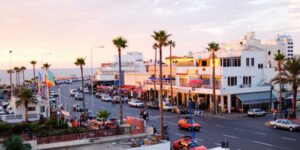
AIN DIAB BEACH CASABLANCA
INTRODUCTION This beach is famous for its stunning views and lively atmosphere, making it a favorite destination for locals and
